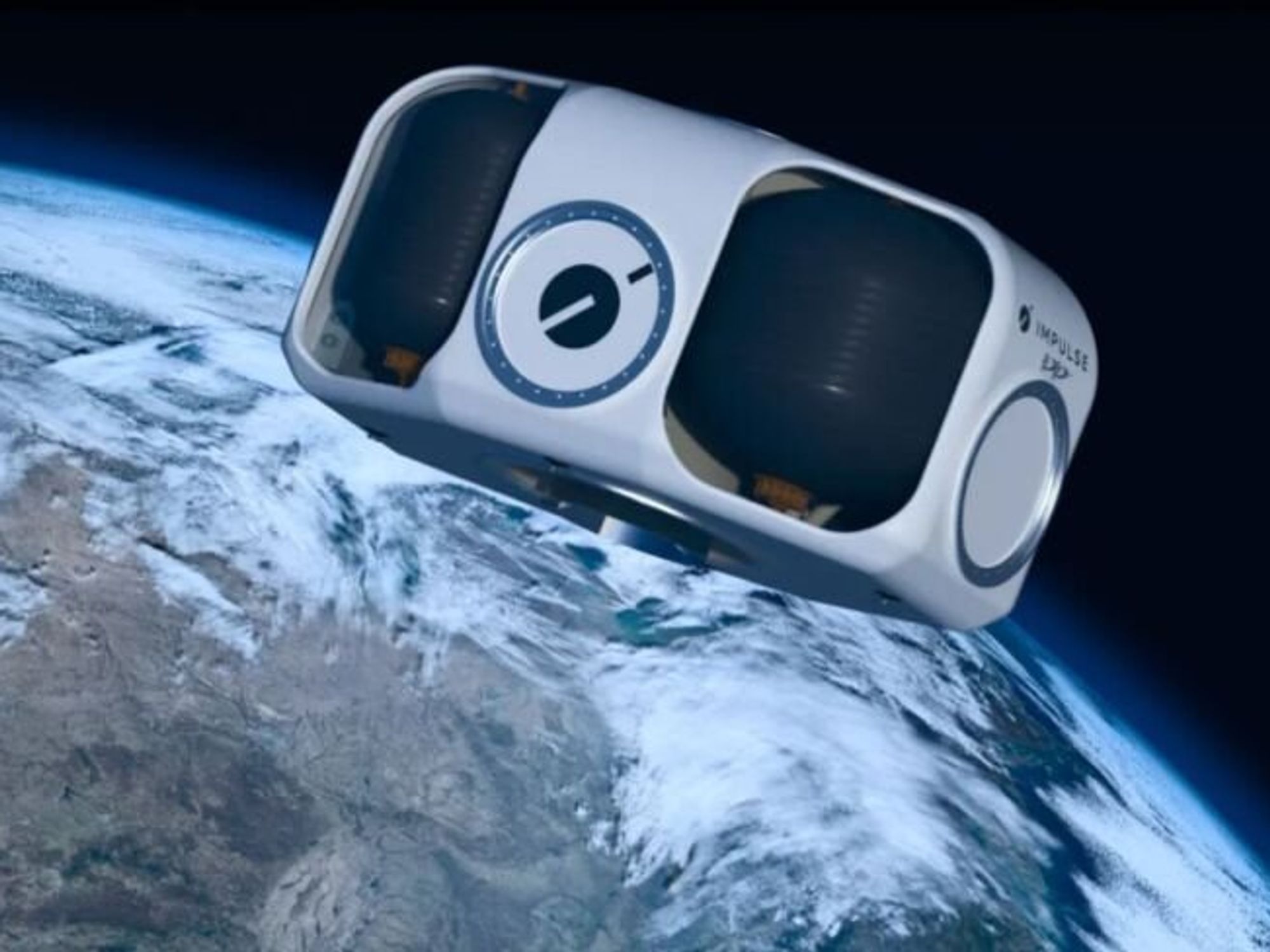Following SpaceX's Footsteps, Impulse Space’s First Mission Will Be a Vital Test of Its Manufacturing Strategy
Samson Amore is a reporter for dot.LA. He holds a degree in journalism from Emerson College. Send tips or pitches to samsonamore@dot.la and find him on Twitter @Samsonamore.

Building a spacecraft is no simple feat. Which is why historically, most manufacturers have opted to contract outside firms to handle constructing parts of their rockets, sacrificing in-house oversight for speed as they rush towards lucrative contracts to stay afloat.
But SpaceX’s track record of launches has inspired other startups to build their own spacecraft in-house. The company proved it could make vertical integration work, and that by controlling all facets of the product’s life cycle – all the way from design to assembly to testing and launch –it could drive down costs because the company’s divisions were sharing infrastructure and equipment.
With El Segundo-based Impulse Space, CEO Tom Mueller is attempting to do the same thing. Mueller founded SpaceX in 2021 after nearly 17 years running propulsion at SpaceX. Working with $30 million in venture funding, Impulse believes that if it can supervise all aspects of its supply and manufacturing chains, it can reduce anomalies or failures and reach Mars even before SpaceX, all while working alongside it.
Impulse Space’s first mission is called LEO Express-1 and will see the company’s Mira orbital service craft hitch a ride to low Earth orbit on a SpaceX Falcon 9 rocket. The launch is slated for the fourth quarter of this year and Impulse chief operating officer Barry Matsumori told dot.LA he expects that to be sometime in October (the launch window hasn’t yet been determined). The mission is part of Impulse’s overall goal to become a sort of Uber for the eventual industrial space economy, ferrying companies’ goods across various orbits as well as storing them.
“It’s actually a service vehicle, meaning it will do more than just transport payloads,” Matsumori said of Mira. “Even the first missions, they’ll have sensors that can do other kinds of work while on orbit.”
Matsumori added that he views Mira as “a high-propulsive satellite.”
During the mission Mira will do some demo maneuvers, including hosting and delivering a payload in-orbit. Mtsumori wouldn’t disclose what that first test payload will be, or who it belongs to.
“We are a bunch of ex-SpaceX-ers, and Tom [Mueller] obviously is, and we believe in vertical integration, because one can control supply chain, quality and cost,” Matsumori told dot.LA. He added that if Impulse were to go with an outside supplier for its propulsion systems, “the price of that system goes up many percentage points compared to what we’re doing.”
One aspect Impulse is eager to test is its proprietary in-house propellant system, which uses a blend of ethane and nitrous oxide. Matsumori said that propulsion systems are typically the most expensive and challenging part of the entire spacecraft. According to him, the fuel Impulse developed is “green” – in other words, storable and nontoxic if it leaks – and developed to be non-corrosive, meaning if there’s a spill, it won’t begin eating away at vital equipment.
Matsumori noted SpaceX has experimented with these fuels but added, “It’s not common. A few other people are using it, but can everybody implement a proven design? No, it has to be a really good propulsion team to figure out how to get the highest performance out of the propellants,” he said. Adding that the system should be qualified for flight “shortly.”
Propulsion is Mueller’s background; he was the propulsion chief technology officer at SpaceX from 2014 to 2019. But he joined SpaceX a decade into its evolution, when it had already had years of experimentation under its belt. Impulse is working with a much tighter timetable.
Matsumori said building all the equipment in-house at Impulse will hopefully reduce the risk of smaller parts jeopardizing the larger mission. If something does go awry, it’s more likely Impulse will invest the time into fixing it rather than outsource, he added.
“What is the number one thing that causes a launch delay? Valves,” Matsumori said. “It’s typically valve failures. We chose, again, vertical integration, we chose to do our own valves… we know exactly what the quality [is].”
If Mira can complete its maneuvers and return on a capsule back to Earth, it’ll be a validation of Impulse’s strategy up until this point.
Impulse recently added five acres to its site at the Mojave Air and Space Port, a sign it plans to ramp up testing of its engines and conduct more low-level experimental flights.
The company is also developing a Mars entry capsule, lander and rover that will be used in a mission with Relativity Space that’s supposed to lift off headed for the Red Planet next year.
“We’ve always said that was an ambitious goal, and Relativity Space would say the same thing,” Matsumori said of the deadline.
If LEO-Express-1 validates Impulse’s manufacturing strategy, which Matsumori said he expects it will, then it’ll truly be full steam ahead on more audacious projects. Impulse is currently testing the propulsion on a prototype Mars lander with plans to develop a “very large vehicle” that will be reusable and eventually rival ULA’s Centaur upper stage.
“Having a stage that competes with Centaur yet is at a fraction of the cost, that’s going to be really exciting for the market,” Matsumori said. “It's not just about Impulse, it's about the entire industry – it needs to evolve.”
- Relativity Approaches Critical Tests In Its Quest To Challenge SpaceX ›
- Meet the Startups Trying to Beat Elon Musk to Mars ›
Samson Amore is a reporter for dot.LA. He holds a degree in journalism from Emerson College. Send tips or pitches to samsonamore@dot.la and find him on Twitter @Samsonamore.




 Image Source: Skyryse
Image Source: Skyryse
 Image Source: Northwood Space
Image Source: Northwood Space